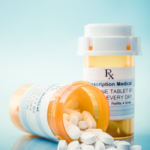
DXM Drugs
When used as prescribed, medications containing DXM can make the common cold or cough more manageable. However, when a person abuses DXM drugs, it can lead to a world of problems. Especially popular amongst young adults and college students, DXM drug abuse has become a nationwide epidemic. DXM drug rehab can help.
How DXM Works
Dextromethorphan is an active ingredient in more than 120 over-the-counter cold medications, including analgesics, antihistamines, decongestants and expectorants.
On the streets, users know dextromethorphan under many different names. Whether it’s “DXM”, “Triple C,” “Skittles,” “Robo” or “Poor Man’s PCP,” abuse of DXM drugs generates euphoria. In high doses, it can even cause visual or auditory hallucinations. Musicians, particularly in the hip-hop industry, romanticize the use of DXM in their songs.
While DXM drug abuse has certainly become trendy amongst young adults, many don’t know about the dangerous consequences. If you suspect a loved one is abusing DXM drugs, you should seek the advice of a DXM drug rehab.
Characteristics of Abuse of DXM Drugs
Medical professionals identify four plateaus of abuse of DXM drugs, with each plateau producing various effects.
Plateau 1 (1.5–2.5 mg/kg): At this dosage, users report feeling similar effects to drinking. They usually experience euphoria, intensified emotions and increased body temperature.
Plateau 2 (2.5–7.5 mg/kg): In many ways, the second plateau is a more intense version of the first. The main difference is that this dosage generally leaves the user feeling more detached from reality. Users report distorted sensory input, sometimes resulting in a dream state of consciousness.
Plateau 3 (7.5–15 mg/kg): At this point, abuse of DXM drugs leads to significant motor skill and sensory impairment. Abstract hallucinations often accompany these side effects.
Plateau 4 (15 mg or more): Any consumption beyond 15 mg can cause the user to lose complete control of his or her body. In fact, most users will lack any desire to move. By this point, many even report out-of-body experiences and intense hallucinations.
Can DXM Drug Abuse Lead to Overdose?
DXM drug abuse in massive dosages can easily cause an overdose. Pay attention to any of the following symptoms, because they may be early onset DXM overdose symptoms:
Breathing problems | Convulsions | Coma | Vomiting | Heart palpitations | Bluish colored lips or fingernails
The Misconception About DXM Drug Addiction
Unlike opiates, alcohol or even nicotine, DXM lacks physically addictive properties. However, continued use can lead to psychological addiction, which can be difficult to combat in its own right.
You don’t have to wait for an overdose to occur or an addiction to develop before getting you or your loved one help. DXM drug rehab offers various educational and treatment resources available to help you in the fight against DXM drug abuse.
